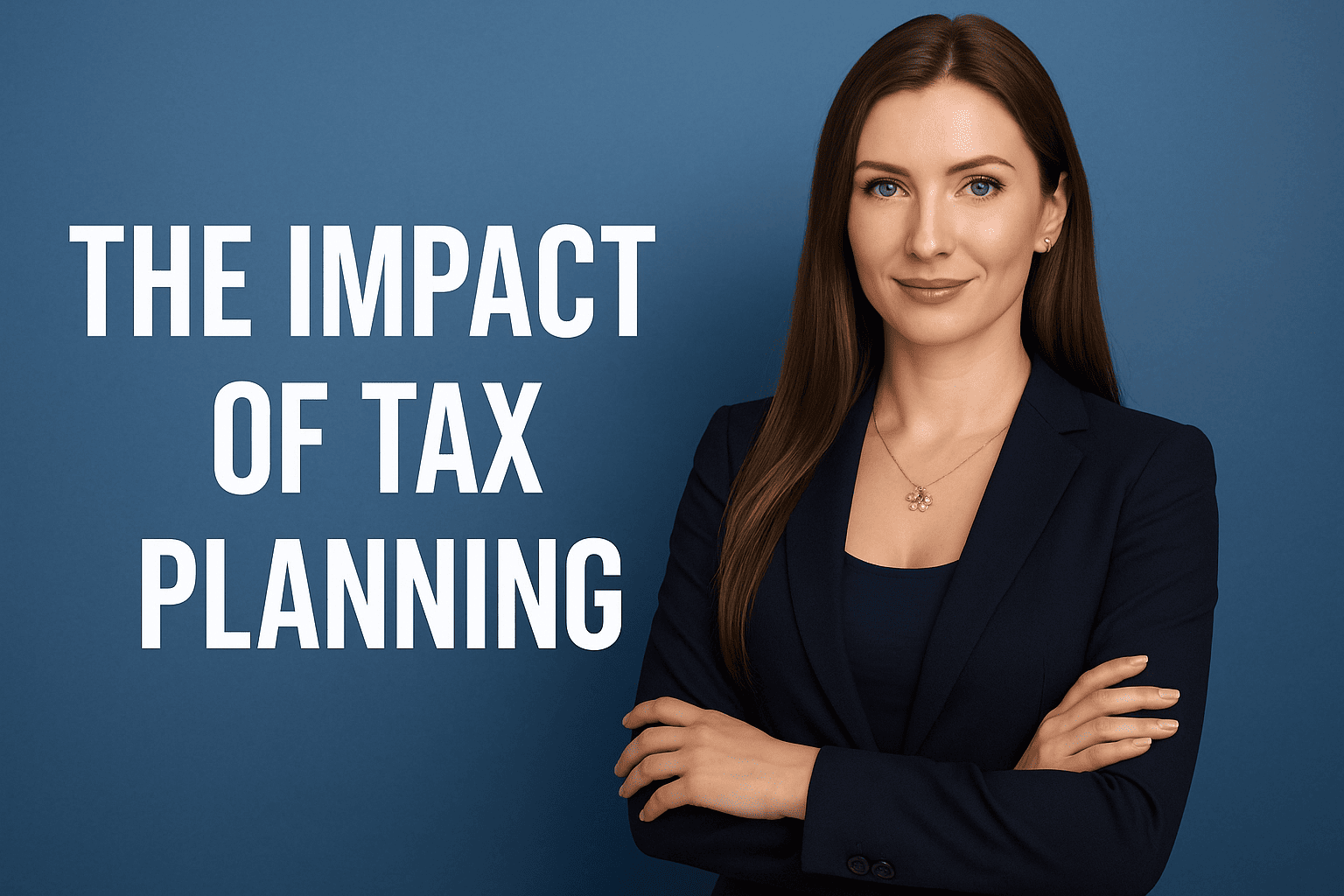
The Impact of Tax Planning on Personal Finances
When most people think about taxes, they think about April 15th — the deadline, the paperwork, and maybe a refund. But what they don’t often realize is that taxes aren’t just a once-a-year event. They’re a year-round reality that quietly shapes how much money stays in your pocket.
That’s where tax planning comes in. And yes — it can make a serious difference in your financial life.

So What Is Tax Planning, Really?
Tax planning is the process of looking ahead and making smart choices about your income, expenses, and investments — with the goal of minimizing how much tax you legally owe.
It’s not about finding loopholes. It’s about knowing how the system works, and using it to your advantage.
For example:
Contributing to retirement accounts to reduce taxable income
Timing your charitable donations
Managing capital gains on investments
Choosing the right filing status
Understanding what deductions or credits you’re eligible for
Done right, tax planning doesn’t just save money. It creates clarity and control.
How It Impacts Your Finances — Short-Term and Long-Term
💵 More Money in Your Hands
Every dollar you don’t pay in unnecessary taxes is a dollar you can use — whether it’s for saving, investing, paying off debt, or just living more comfortably.
📊 Better Budgeting
When you understand your tax liability ahead of time, you're less likely to be surprised by a big bill (or overpay and wait for a refund). That predictability helps with monthly and yearly planning.
🏡 Life Milestones
Buying a home, starting a business, having a child — all of these have tax consequences. A good tax plan helps you prepare, and in some cases, benefit from the timing.
🧾 Smoother Tax Filing
With year-round tax planning, you're not scrambling at tax time. You’ve already made smart moves — now it’s just about reporting them correctly.
📉 Less Risk of IRS Trouble
Proper planning reduces the chance of errors, underpayment, or red flags that could trigger audits or penalties.
Who Needs Tax Planning?
Honestly? Most people do. But especially:
Small business owners and freelancers
Self-employed professionals
High earners
People with investments, rental properties, or crypto
Families navigating education or childcare expenses
Anyone with international ties or income from abroad
Even W-2 employees can benefit — especially if they’ve had life changes like marriage, kids, or a new side hustle.
What Tax Planning Is Not
It’s not “tax evasion.” It’s not just plugging numbers into TurboTax. It’s not something you only do in March.
It’s a strategy. One that builds wealth, reduces stress, and gives you a clearer picture of your money.
Need Help With Tax Planning?
If you’ve been handling taxes reactively — only thinking about them once a year — you’re probably leaving money on the table.
Svetlana Gadzhieva, CPA and EA, works with individuals and small business owners across the U.S., helping them build real tax strategies that align with their goals.
From retirement planning and deductions to multi-state issues and IRS communication — Svetlana helps clients make decisions that make a difference.
📬 Ready to Start Planning Smarter?
🌐 Website: gadzhieva.com
📧 Email: svetlana@gadzhieva.com
📱 Phone: (510) 974-3115
💬 Telegram: https://t.me/Svetlana_CPA
📸 Instagram: @gadzhievacpa
💼 LinkedIn: Svetlana Gadzhieva, CPA
📍 Based in California, available nationwide